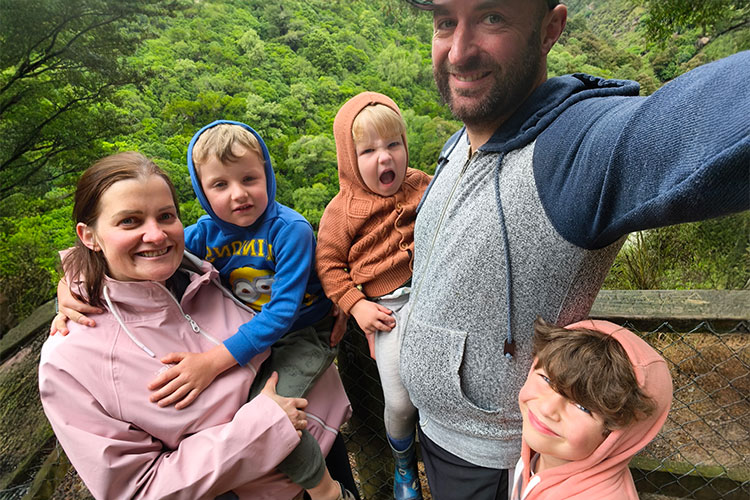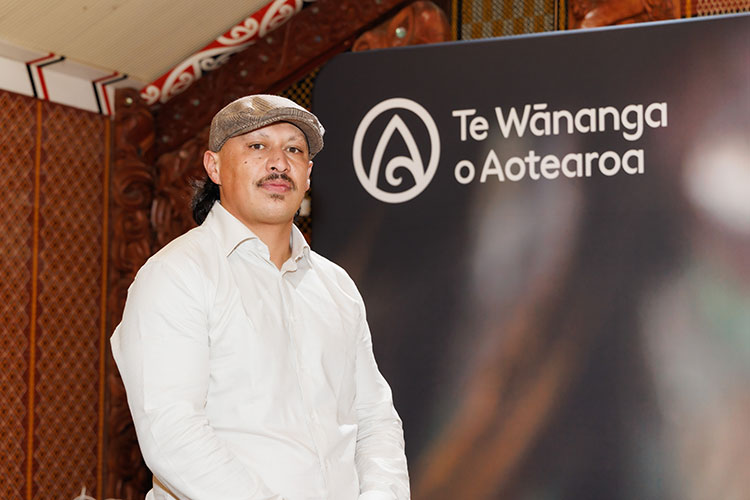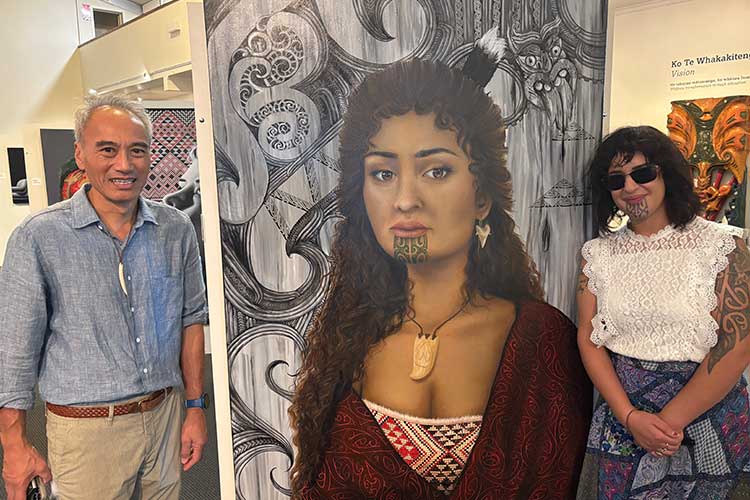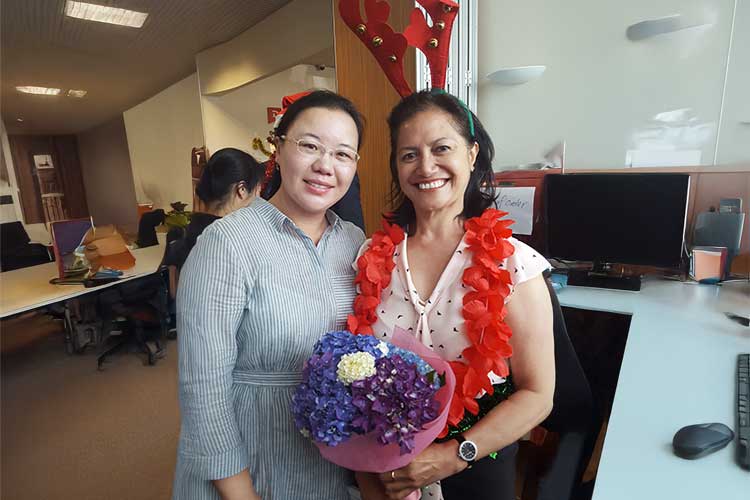Becky Kiddle (front row, second from left) with her Te Manawahoukura team
Te Manawahoukura director Dr Becky Kiddle (Ngāti Porou, Ngāpuhi) has been awarded one of the premier research fellowships in New Zealand.
On Friday she received the Mana Tūānuku Research Leader Fellowship from the Royal Society Te Apārangi. The fellowship supports mid-career researchers to firmly establish themselves as experts in their research domain and as leaders within the research landscape.
The fellowships are worth $1.16 million over 4 years and only 10 are awarded each year.
Dr Kiddle has a background in urban design and urbanism. Her work focuses on Māori identity and placemaking/placekeeping in Aotearoa New Zealand urban settings and the nexus between community creation, social processes, and urban design.
She is the inaugural director of Te Manawahoukura, the Rangahau Centre at Te Wānanga o Aotearoa, which was established in mid-2023 to reinvigorate a culture of Rangahau by focusing on Indigenous inquiry and honouring Māori ways of knowing, doing, and being.
Te Wānanga o Aotearoa Kaiwhakatere Nepia Winiata says the fellowship is testament to Becky’s mahi.
“Becky has worked incredibly hard this year, and we're absolutely elated for this outcome - it's a testament to her incredible vision, impactful rangahau, and tenacious work ethic,” he says.
"It is also further acknowledgement of the work Te Manawahoukura does, following the recent success of Dr Maree Sheehan and Dr Tim Angeli-Gordon at the Royal Society Te Apārangi and the Health Research Council of New Zealand awards.”
Dr Sheehan (Ngāti Maniapoto-Waikato, Ngāti Tūwharetoa, Ngāti Tahu-Ngāti Whāoa, Clan Sheehan, Clan Marshall) was awarded the Royal Society Te Apārangi Te Kōpūnui Māori Research Award for her scholarship on audio portraiture and sonic practices that honour and elevates the voices and identities of wāhine Māori.
Dr Angeli-Gordon received the Cooper Award for discovering new electrical and cellular disease mechanisms to diagnose patients suffering chronic gastrointestinal disease and bringing new bioengineering techniques into clinical application.
Find out more about Te Manawahoukura at www.temanawahoukura.org.nz




































